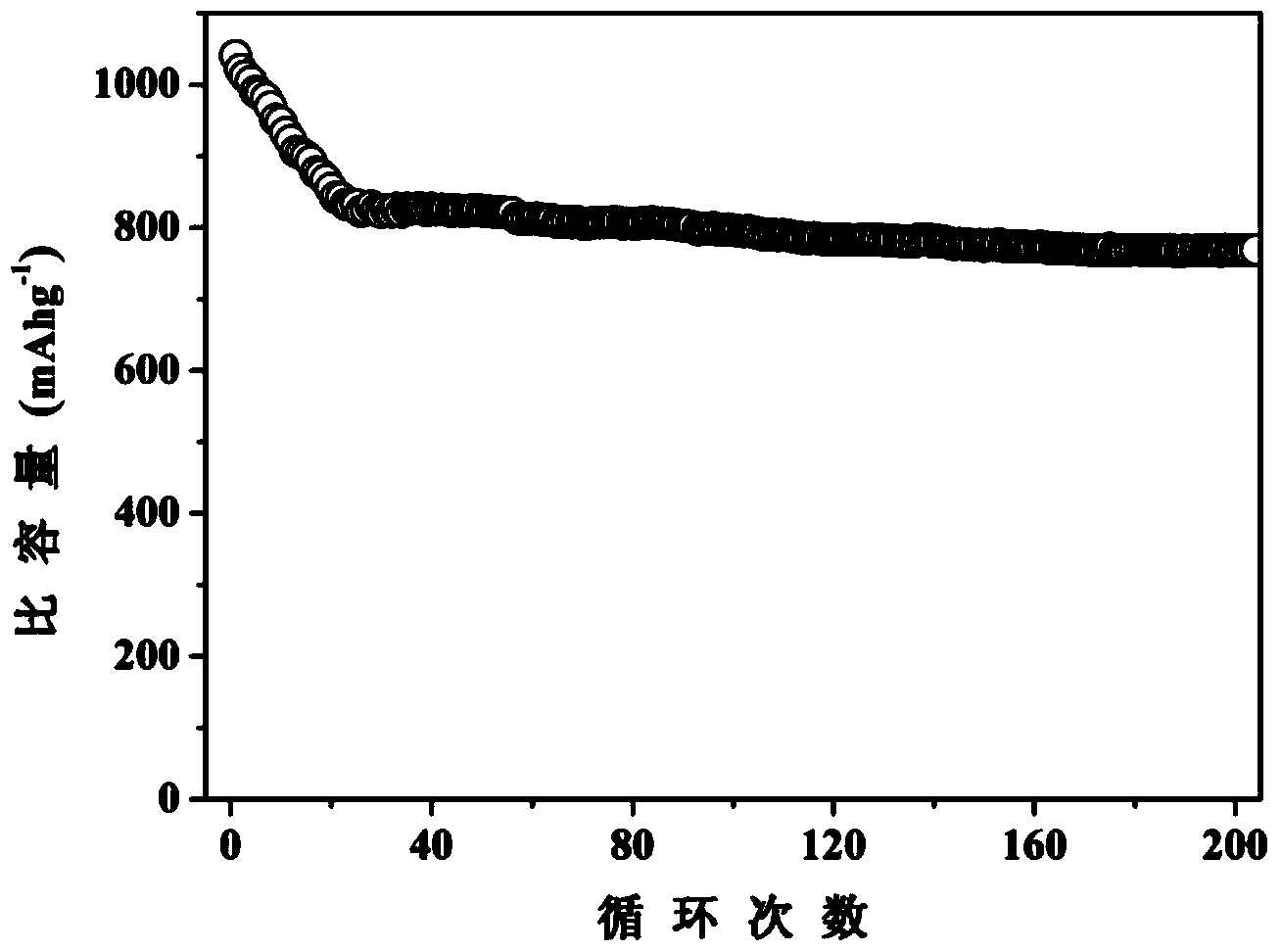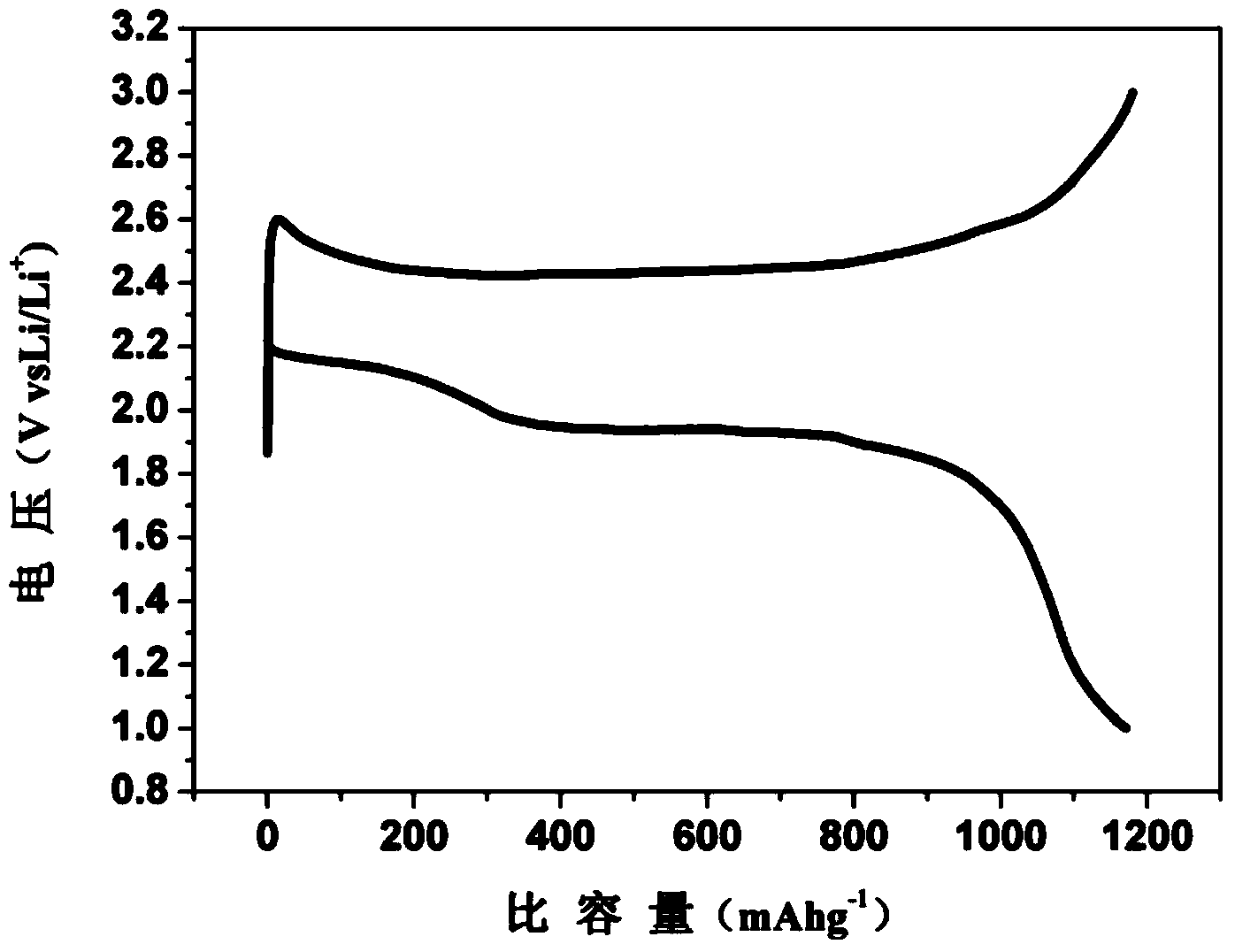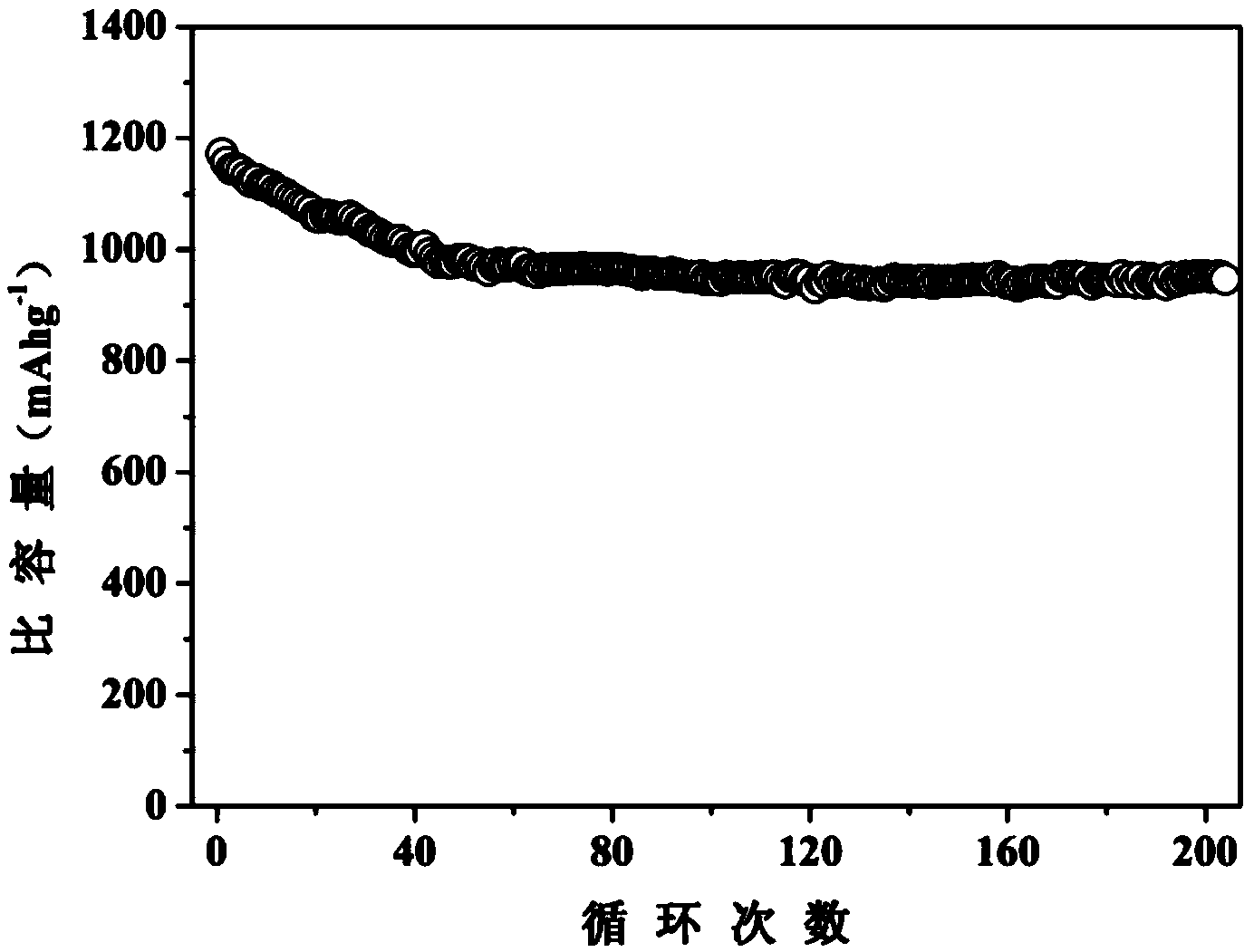Zeolite-based positive pole material for lithium-sulfur battery and preparation and application methods thereof
A lithium-sulfur battery and positive electrode material technology, which is applied in the direction of battery electrodes, lithium batteries, non-aqueous electrolyte battery electrodes, etc., can solve problems such as capacity fading, battery negative electrode corrosion, battery internal resistance, sulfur electrode microcracks, etc.
- Summary
- Abstract
- Description
- Claims
- Application Information
AI Technical Summary
Problems solved by technology
Method used
Image
Examples
Embodiment 1
[0037] Pretreatment of zeolite powder: select zeolite powder with a particle size of less than 5 μm, wash it with deionized water, then ultrasonically vibrate the cleaned zeolite powder for 1 hour, and then dry it in an oven at 85° C. for 24 hours. Add the zeolite powder to 10mol / L HCl solution for pickling treatment for 2 hours, and then perform preactivation, keep the zeolite powder at 200°C for 2 hours under vacuum condition, and cool it to room temperature under vacuum condition to obtain the purified zeolite powder material.
[0038] Mix the zeolite powder material and elemental sulfur 1:1 evenly after the above pretreatment, place in a quartz boat, heat to 100°C at 2°C / min under a vacuum of 100Pa, keep the temperature for 2h, and then continue to mix the sample Heating to 120°C at a heating rate of 2°C / min, keeping the temperature at a constant temperature for 0.5h, maintaining the vacuum condition and then cooling down to room temperature at a cooling rate of 2°C / min. The...
Embodiment 2
[0040] Select the zeolite sulfur-carrying material obtained in Example 1 to prepare the nickel-coated zeolite sulfur-carrying material:
[0041] Pretreatment is carried out on the zeolite sulfur-loaded material to ensure that the coated metal is coated evenly and has good adhesion.
[0042] 1. Degreasing: Take 5g of zeolite sulfur-loaded material in 200ml of ethanol solution, add 100ml of 37% HCl, ultrasonically oscillate for 20min at a temperature of 30°C, wash with deionized water until the pH is neutral, and filter to dry.
[0043] 2. Sensitization: the above-mentioned zeolite sulfur-loaded material was mixed with 10g / L SnCl 2 2H 2 Carry out sensitization treatment in O+40g / L HCL solution for 30min, wash with deionized water, and filter dry.
[0044] 3. Activation: Put the sensitized zeolite sulfur-loaded material in 0.5g / L PdCl 2 +0.25mL HCl solution for activation treatment for 30min, washed with deionized water, and filtered dry.
[0045] 4. Reduction: soak the activ...
Embodiment 3
[0055] The process of pretreating the zeolite powder is the same as in Example 1.
[0056] Mix the pretreated zeolite material with elemental sulfur 1:1 evenly, place it in a quartz boat, heat it to 155°C in a tube furnace fed with Ar gas, keep the temperature constant for 12 hours, continue to heat the mixed sample to 320°C, and keep the temperature constant for 6 hours , maintain the protective atmosphere conditions and cool to room temperature. The samples were further ground and dried to prepare zeolite sulfur-loaded materials.
[0057] Preparation of copper-coated zeolite sulfur-carrying material: preparation was carried out by the same steps as in Example 2, except that the following solution composition and process were used for reduction and electroless plating.
[0058] Reduction: soak the activated zeolite sulfur-loaded material in 10% formaldehyde solution for 0.5-2min, wash with deionized water, and filter to dry.
[0059] Electroless copper cladding:
[0060] T...
PUM
| Property | Measurement | Unit |
|---|---|---|
| particle diameter | aaaaa | aaaaa |
| thickness | aaaaa | aaaaa |
| particle diameter | aaaaa | aaaaa |
Abstract
Description
Claims
Application Information
 Login to View More
Login to View More - R&D
- Intellectual Property
- Life Sciences
- Materials
- Tech Scout
- Unparalleled Data Quality
- Higher Quality Content
- 60% Fewer Hallucinations
Browse by: Latest US Patents, China's latest patents, Technical Efficacy Thesaurus, Application Domain, Technology Topic, Popular Technical Reports.
© 2025 PatSnap. All rights reserved.Legal|Privacy policy|Modern Slavery Act Transparency Statement|Sitemap|About US| Contact US: help@patsnap.com



